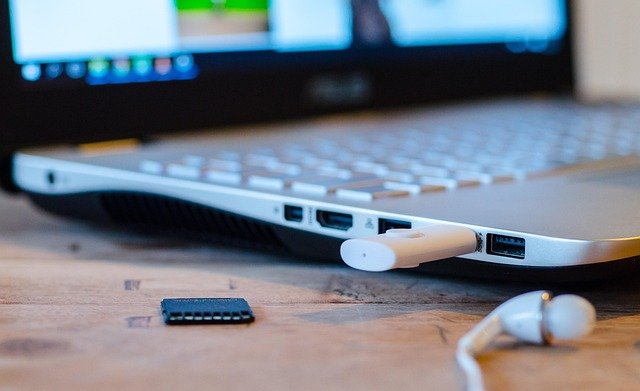Is It Possible To Get Used Laptops Cheaper? Learn More About It
Used laptops are often discussed in terms of condition, performance, and price. Learn how costs are typically explained, what buyers look for, and how factors like warranty, specifications, and age can influence the value and lifespan of a used laptop.

How Are Used Laptop Prices Explained?
The pricing of used laptops is influenced by a complex interplay of factors. Generally, used laptops are indeed cheaper than their brand-new counterparts. This price difference is primarily due to depreciation, which begins the moment a new laptop is purchased and unboxed. However, the extent of the price reduction can vary significantly based on several key elements.
One of the primary factors affecting used laptop prices is the age of the device. Newer models tend to command higher prices in the used market, as they often feature more up-to-date technology and longer remaining lifespans. Conversely, older laptops may see steeper price drops, especially if they’re no longer capable of running the latest software efficiently.
What Are the Key Factors Affecting Value?
Several crucial factors play a role in determining the value of a used laptop:
-
Brand and Model: Premium brands like Apple, Dell, and Lenovo often retain their value better than lesser-known brands. Similarly, high-end models within a brand’s lineup typically depreciate more slowly than budget options.
-
Specifications: The internal components of a laptop significantly impact its resale value. Processors, RAM, storage capacity, and graphics cards all play a role in determining a used laptop’s worth.
-
Physical Condition: The overall appearance and functionality of the laptop are critical. Devices with minimal wear and tear, intact screens, and fully functional keyboards will fetch higher prices than those with visible damage or operational issues.
-
Market Demand: Popular models or those with specific features in high demand can maintain higher resale values, even as they age.
-
Technological Advancements: Rapid developments in laptop technology can quickly make older models less desirable, affecting their resale value.
What Warranty and Condition Considerations Should You Keep in Mind?
When considering a used laptop purchase, warranty and overall condition are paramount concerns:
Warranty: Many used laptops no longer carry the original manufacturer’s warranty. However, some sellers offer limited warranties or the option to purchase extended coverage. Always clarify the warranty status before making a purchase.
Condition Assessment: Thoroughly inspect the laptop’s physical condition and performance. Look for signs of wear, check all ports and functions, and if possible, run diagnostic tests to ensure all components are working correctly.
Battery Health: Laptop batteries degrade over time, so inquire about the battery’s condition and remaining capacity. Replacement batteries can be a significant additional expense.
Software Licenses: Verify whether the laptop comes with valid licenses for essential software, such as the operating system. Purchasing these separately can add to the overall cost.
Where Can You Find Reliable Used Laptops?
There are several avenues for purchasing used laptops, each with its own advantages and considerations:
-
Certified Refurbished Programs: Many manufacturers and large retailers offer certified refurbished laptops. These often come with warranties and have been professionally inspected and restored.
-
Online Marketplaces: Platforms like eBay, Amazon, and Swappa offer a wide selection of used laptops from various sellers. However, buyer caution is advised, and it’s important to carefully review seller ratings and return policies.
-
Local Computer Stores: Some local shops specialize in refurbished electronics and may offer used laptops with the added benefit of in-person inspection and local support.
-
Corporate Surplus Sales: Large companies often sell off their used laptops in bulk. These can be great deals, as corporate laptops are typically well-maintained and of higher quality.
How Do Used Laptop Prices Compare to New Models?
To give you a clearer picture of potential savings, let’s compare the prices of some popular laptop models in new and used conditions:
| Model | New Price | Used Price (Avg.) | Potential Savings |
|---|---|---|---|
| MacBook Air (M1, 2020) | $999 | $700 - $850 | 15% - 30% |
| Dell XPS 13 (9310) | $999 | $600 - $800 | 20% - 40% |
| Lenovo ThinkPad X1 Carbon (Gen 9) | $1,399 | $900 - $1,100 | 20% - 35% |
| HP Spectre x360 14 | $1,199 | $800 - $1,000 | 15% - 33% |
Prices, rates, or cost estimates mentioned in this article are based on the latest available information but may change over time. Independent research is advised before making financial decisions.
As you can see, purchasing a used laptop can result in significant savings, often ranging from 15% to 40% off the original price. However, it’s crucial to remember that these are average figures, and actual prices can vary based on the specific condition, age, and seller of the used laptop.
In conclusion, it is indeed possible to get used laptops cheaper than their new counterparts. By understanding the factors that influence used laptop prices, considering warranty and condition aspects, and exploring various purchasing options, you can find a pre-owned laptop that meets your needs while saving money. Remember to do thorough research, compare prices across different platforms, and carefully evaluate the condition of any used laptop before making a purchase.




